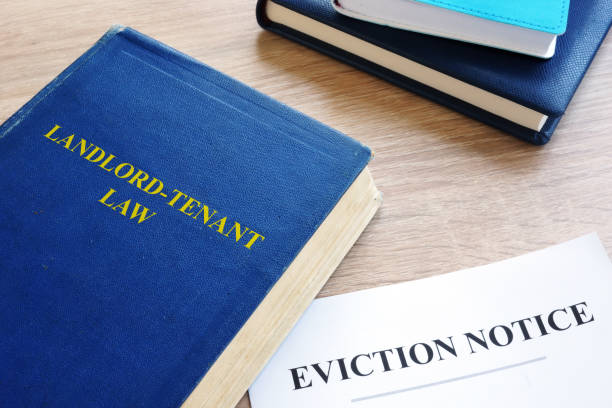
Navigating Through Restricted License Kansas Rules: A Complete Guide
Getting a restricted license in Kansas can be a crucial step for individuals who need to drive under certain legal constraints. Whether it’s due to DUI convictions or as a stepping stone for new drivers, understanding the restricted license Kansas rules is essential. In this article, we will explore the various aspects of obtaining and maintaining a restricted license in the Sunflower State.
Understanding Restricted Licenses in Kansas
A restricted license in Kansas serves as a provisional driving privilege for individuals whose regular licenses have been suspended or revoked due to various infractions, such as DUIs (Driving Under the Influence) or accumulating excessive points on their driving records. This type of license permits drivers to operate a vehicle under specific conditions, enabling them to fulfill essential responsibilities such as commuting to work, attending school, or engaging in other approved activities. Let’s delve deeper into the eligibility criteria, purposes, and conditions associated with restricted licenses in Kansas.
Eligibility
The Kansas Department of Revenue sets specific eligibility criteria that applicants must satisfy to obtain a restricted license. These criteria typically include:
- Reason for Suspension or Revocation: Applicants must have had their regular driver’s licenses suspended or revoked for reasons recognized by the state, such as DUI convictions, accumulating excessive points, or other traffic violations.
- Compliance with Requirements: Individuals seeking a restricted license must demonstrate compliance with any court-mandated requirements, such as completing a DUI education program or fulfilling community service obligations.
- Insurance Coverage: Applicants are often required to provide proof of valid auto insurance coverage to ensure financial responsibility while operating a vehicle.
- Payment of Fees: There may be associated fees or fines that applicants must pay to the Kansas Department of Revenue to process their restricted license application.
Purpose
The primary purpose of issuing restricted licenses in Kansas is to facilitate mobility for essential needs despite the suspension or revocation of a regular driver’s license. The key objectives include:
- Maintaining Employment: Restricted licenses enable individuals to continue commuting to their places of employment, thereby promoting financial stability and preventing job loss resulting from the inability to drive.
- Educational Pursuits: Students can utilize restricted licenses to attend school, colleges, or vocational training programs, ensuring continuity in their education and personal development.
- Meeting Basic Needs: Access to healthcare services, grocery stores, and other essential amenities is vital for individuals and families. Restricted licenses allow individuals to meet these basic needs without undue hardship.
- Rehabilitation and Compliance: By providing restricted driving privileges, the state aims to encourage compliance with court-ordered requirements, such as attending counseling sessions or fulfilling probationary terms, thereby fostering rehabilitation and responsible behavior among offenders.
Conditions
While holding a restricted license in Kansas, drivers must adhere to specific conditions imposed by the Department of Revenue. These conditions typically include:
- Restricted Hours: Drivers may be limited to operating a vehicle only during certain hours of the day, often corresponding to their work or educational schedules.
- Geographical Restrictions: Some restricted licenses may impose limitations on the geographic areas where the individual is permitted to drive, typically within the boundaries of their residence, workplace, and school.
- Ignition Interlock Device: Individuals convicted of DUI offenses may be required to install an ignition interlock device in their vehicles, which prevents the engine from starting if alcohol is detected on the driver’s breath.
- Reporting Requirements: Drivers with restricted licenses may be obligated to report regularly to the Department of Revenue or other designated authorities to verify compliance with license conditions and monitor driving behavior.
- Probationary Period: Restricted licenses are often issued for a specified probationary period, during which the driver must demonstrate responsible driving behavior and compliance with all imposed conditions.
Eligibility Criteria for a Restricted License
To apply for a restricted license in Kansas, individuals must first understand the eligibility requirements. These are strictly enforced and are designed to ensure that only those who need these privileges for essential travel can obtain them.
Age Requirements
To be eligible for a restricted license in Kansas, individuals must be of legal driving age, which typically means being at least 16 years old. This age requirement ensures that applicants have reached a level of maturity and responsibility necessary for safe driving practices.
Reason for Restriction
The primary reason for a restricted license in Kansas is usually a DUI (Driving Under the Influence) conviction or serious moving violations.
- DUI Conviction: If an individual has been convicted of DUI, they may be eligible for a restricted license after serving a certain portion of their suspension period, provided they meet other criteria. DUI convictions are considered serious offenses due to the increased risk they pose to road safety.
- Serious Moving Violations: Individuals who have committed serious moving violations, such as reckless driving or excessive speeding, may also be eligible for a restricted license, depending on the circumstances of their case. These violations indicate a disregard for traffic laws and may result in the suspension of driving privileges.
Prior License Status
Applicants must have held a valid Kansas driver’s license before the suspension occurred. This requirement ensures that individuals applying for a restricted license have prior driving experience and are familiar with the rules of the road. It also serves as an indicator of responsibility, as individuals who have previously held a license are more likely to understand the consequences of their actions while driving.
Application Process for a Restricted License

The application process for a restricted license in Kansas involves several steps, including submitting the necessary documents and possibly attending a hearing.
Documentation
Initiating the process of obtaining a restricted license in Kansas necessitates a comprehensive approach towards gathering all required documentation. It is imperative to ensure that the following essential documents are in hand:
- Proof of Identity: Valid government-issued identification, such as a driver’s license, passport, or state ID card, serves as a fundamental requirement to verify the applicant’s identity.
- Proof of Residency: Documents validating residency in Kansas, such as utility bills, rental agreements, or bank statements, play a crucial role in establishing the applicant’s residency status, a vital aspect of the application process.
The meticulous collection of these documents sets the foundation for a smooth and efficient application process, ensuring that applicants meet the initial eligibility criteria for a restricted license.
Application Form
Once all requisite documentation is assembled, applicants must proceed to complete the appropriate application forms provided by the Kansas Department of Revenue (DOR). Several key points merit attention in this stage:
- Obtaining Forms: Application forms can typically be acquired from the DOR’s official website or through in-person visits to local DOR offices.
- Providing Information: The application form necessitates the provision of detailed personal information, including but not limited to, name, address, date of birth, and contact details. Additionally, applicants must furnish information regarding the reason for the restriction, providing supporting documentation where necessary.
Accuracy and completeness in filling out the application forms are paramount, as any discrepancies or omissions may lead to delays or complications in the processing of the application.
Fees
In tandem with completing the application form, applicants are mandated to remit the requisite application fees. The fee amount may vary depending on various factors, including the nature of the restriction sought and the specific circumstances of the applicant. Key considerations in this regard include:
- Fee Amount: Ensuring the correct fee amount is submitted in accordance with the guidelines provided by the licensing authority.
- Payment Methods: Familiarizing oneself with the accepted payment methods, which may include cash, check, or electronic payment options.
Prompt and accurate payment of the application fees is essential to facilitate the seamless progression of the application process.
Submission of Application
Armed with the completed application form and payment of the requisite fees, applicants proceed to submit their application to the Kansas Department of Revenue or the designated licensing authority. Various submission channels are available, including:
- Mail Submission: Mailing the application package to the designated address provided by the licensing authority.
- In-Person Submission: Personally delivering the application package to designated DOR offices or other authorized submission centers.
Following the prescribed submission instructions is imperative to ensure that the application is received and processed in a timely manner.
Possible Hearing
Certain circumstances may warrant the applicant’s attendance at a hearing as part of the application process. This is particularly common in cases involving serious violations or contested issues. Key facets of the hearing process include:
- Notification: Applicants are typically notified of the hearing date, time, and location in advance.
- Presentation of Case: During the hearing, applicants may have the opportunity to present their case, provide additional information, and respond to any queries posed by the licensing authority.
A thorough understanding of the hearing process and preparation beforehand can significantly enhance the applicant’s chances of a successful outcome.
Wait for Approval
Following the submission of the application, applicants enter a phase of awaiting approval from the licensing authority. The duration of this waiting period may vary based on factors such as the volume of applications and the complexity of the case. Key considerations during this phase include:
- Patience and Persistence: Exercising patience and maintaining communication with the licensing authority to inquire about the status of the application, if necessary.
- Abstaining from Driving: Adhering to the directive to refrain from driving until the restricted license is officially issued to avoid any legal complications.
Conditions of a Restricted License

Individuals granted a restricted license in Kansas are subject to specific conditions that regulate their driving privileges. Adherence to these conditions is essential to ensure compliance with the terms of the restriction and maintain road safety. Below are the detailed conditions imposed on holders of a restricted license:
Allowed Times
Restricted license holders are only permitted to drive during certain hours of the day, which are typically aligned with essential activities such as work or school schedules. This condition aims to limit driving to necessary purposes and minimize non-essential travel. Key points regarding allowed times include:
- Designated Hours: The restricted license may specify specific time frames during which driving is permitted. For example, driving may be allowed only during daylight hours or within a specified range, such as from 6:00 AM to 8:00 PM.
- Exceptions: Certain exceptions may apply, allowing driving outside of the designated hours for emergencies or other exceptional circumstances. However, such exceptions should be rare and well-justified.
Approved Locations
Restricted license holders are restricted to driving to and from specific locations deemed essential, such as work, school, or medical appointments. This condition is intended to limit driving to necessary destinations and prevent misuse of driving privileges. Key aspects of approved locations include:
- Work: Driving to and from the workplace is typically permitted, as maintaining employment is considered essential for financial stability and societal participation.
- School: Restricted license holders may drive to and from educational institutions, including schools, colleges, or vocational training centers. Education is crucial for personal development and advancement.
- Medical Appointments: Driving for medical appointments, including visits to healthcare providers or therapy sessions, is often allowed to ensure individuals can access necessary healthcare services.
Duration and Renewal
The duration and renewal process of a restricted license in Kansas are essential aspects to consider for individuals seeking to regain their driving privileges under restricted conditions. Understanding these factors is crucial for maintaining compliance with Kansas rules and ensuring continuous lawful driving. Let’s delve into the details:
Typical Duration
The duration of a restricted license in Kansas can vary depending on the specific circumstances surrounding its issuance. While the typical duration is one year, it is important to note that this duration is not set in stone and may vary based on factors such as the nature of the restriction, the severity of the offense, and the discretion of the licensing authority. Key points regarding the duration include:
- One Year Standard: In many cases, a restricted license is initially issued for a period of one year. This duration provides individuals with an opportunity to demonstrate their commitment to responsible driving behavior and compliance with the conditions of the restriction.
- Variability: However, it is essential to recognize that the duration of a restricted license is not fixed and may be subject to adjustment based on individual circumstances and the discretion of the licensing authority. Factors such as successful completion of probationary periods or participation in rehabilitative programs may influence the duration of the restriction.
Renewal Process
Renewal of a restricted license in Kansas involves reapplying for the license and potentially attending another hearing. This process is essential for individuals who wish to continue driving under restricted conditions beyond the initial duration of their license. Key aspects of the renewal process include:
- Reapplication: To renew a restricted license, individuals must submit a new application to the Kansas Department of Revenue or the appropriate licensing authority. This application typically requires updated information and documentation to reflect any changes since the initial application.
- Possibility of Hearing: Depending on the circumstances, individuals seeking to renew their restricted license may be required to attend another hearing as part of the renewal process. This hearing allows the licensing authority to assess the individual’s continued eligibility for a restricted license and may involve a review of driving records, compliance with previous restrictions, and any additional mitigating factors.
- Renewal Fees: Applicants may be required to pay renewal fees as part of the application process. The fee amount and payment instructions will be provided by the licensing authority and must be adhered to in order to complete the renewal process.
Violations and Penalties
Understanding common violations and their associated penalties is crucial for individuals holding restricted licenses. Let’s explore these aspects in detail:
Common Violations
Restricted license holders must comply with specific terms and conditions governing when and where they can drive. Common violations of these terms include:
- Driving Outside of Approved Times: Operating a vehicle outside of the designated hours specified on the restricted license constitutes a violation. This includes driving during restricted hours when it is not permitted under the terms of the license.
- Driving to Unauthorized Locations: Traveling to destinations that are not approved under the terms of the restricted license, such as non-essential locations or places not explicitly permitted by the licensing authority, is considered a violation.
Consequences of Violations
Violating the terms of a restricted license can lead to severe penalties, including additional suspensions, fines, and even the possibility of losing the license altogether. Key consequences of violations include:
- Additional Suspensions: Individuals found to be in violation of the terms of their restricted license may face additional suspension periods as a consequence. These suspension periods may vary depending on the severity of the violation and the discretion of the licensing authority.
- Monetary Fines: Violators may be subject to fines imposed by the court or the licensing authority. The amount of the fine may vary depending on factors such as the nature of the violation and any previous infractions on the individual’s driving record.
- Revocation of License: In egregious cases or for repeat offenders, the licensing authority may choose to revoke the individual’s restricted license altogether. This would result in the loss of driving privileges and may necessitate the individual to reapply for a license after a specified period.
Impact on Insurance

Understanding these impacts is crucial for individuals seeking to regain their driving privileges under restricted conditions. Let’s explore how a restricted license can influence your insurance rates and financial situation:
Higher Premiums
Insurance companies may impose higher premiums for individuals holding a restricted license due to the perceived increased risk associated with driving under restricted conditions. Common reasons for higher premiums include:
- Increased Risk Profile: Restricted license holders may be perceived as higher-risk drivers by insurance companies due to factors such as previous violations or convictions that led to the restriction. As a result, insurance companies may adjust premiums to reflect this higher perceived risk.
- Limited Driving Privileges: The restrictions imposed on a restricted license, such as limited driving hours and approved locations, may lead insurance companies to consider the individual as a higher risk. Limited driving privileges may indicate a history of unsafe driving behavior or increased likelihood of future accidents.
Required Documentation
When applying for a restricted license, individuals are typically required to provide proof of insurance coverage. This documentation serves as evidence that the individual has the necessary insurance protection in place to comply with legal requirements and mitigate financial risks in the event of an accident. Key points regarding required documentation include:
- Proof of Insurance: Applicants must furnish proof of valid auto insurance coverage meeting the minimum requirements mandated by Kansas state law. This documentation demonstrates financial responsibility and ensures compliance with legal obligations.
- Insurance Verification: The licensing authority may verify the authenticity and adequacy of the insurance coverage provided by the applicant to ensure compliance with state regulations. Failure to provide sufficient proof of insurance may result in delays or denial of the restricted license application.
Conclusion
Understanding and navigating the restricted license Kansas rules doesn’t have to be complicated. With the right information and a clear understanding of the requirements, individuals can manage their driving privileges effectively. This guide aims to provide valuable insights into each step of the process, ensuring that all those in need of a restricted license in Kansas are well-informed and prepared.
FAQ
A restricted license is a special type of driver’s license issued to individuals who have had their regular licenses suspended but need to drive for essential purposes.
No, driving is typically restricted to and from places like work, school, or medical appointments, during specific hours.
The duration can vary, usually up to 1 year, after which it may be renewed or reinstated as a full license depending on the individual’s circumstances.


